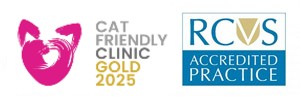Submitted by J. Hudson on Thu, 08/08/2024 - 10:14
Intervertebral Disc Disease (IVDD) is a debilitating condition where the cushioning discs between a dog's spinal bones deteriorate or bulge, pressing on the spinal cord and nerves leading to pain, weakness, and even paralysis. This condition is particularly common in breeds with long backs and short legs, such as Dachshunds. One severe and sudden type of IVDD is acute thoracolumbar disk extrusion, where a disc in the middle to lower back abruptly ruptures, causing significant pain and mobility issues due to spinal cord compression. At the QVSH, we pride ourselves on ground-breaking research and putting the welfare of our patients first. Our Neurology Team has recently published a study, shining a light on the treatment and recovery of dogs suffering from acute thoracolumbar disk extrusion. Decompressive spinal surgery is often recommended for these cases, but our study explores the potential of conservative management as a viable option. Our approach focuses on contextualised care, ensuring the right care for the right patient.
This study aimed to determine the proportion of nonambulatory dogs that regain the ability to walk after conservative treatment and to measure changes in spinal cord compression over the first 12 weeks. Seventy-two client-owned nonambulatory dogs with acute thoracolumbar intervertebral disk extrusion were enrolled. MRI scans were conducted at presentation and after 12 weeks, with owners following conservative management guidelines. Recovery was defined as the ability to take 10 consecutive steps without falling.
The results were promising, 96% of deep pain-positive dogs and 48% of deep pain-negative dogs regained ambulation within 12 weeks. The median time to ambulation was 11 days for deep pain-positive dogs and 25 days for deep pain-negative dogs. Interestingly, the reduction in spinal cord compression varied among individuals and did not correlate with the recovery of ambulation. This research not only highlights the potential for non-surgical recovery but also reinforces our commitment to providing the best possible care for our patients by offering different options to clients and improving accessibility for affordable care.



